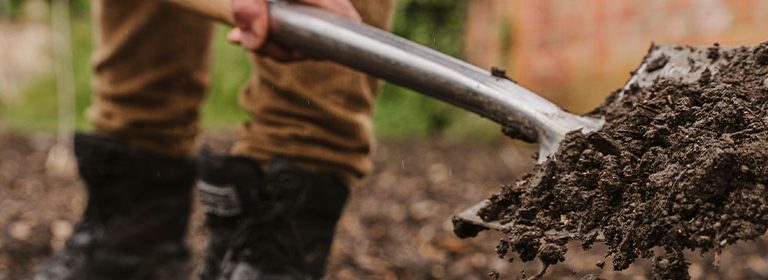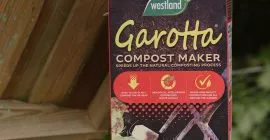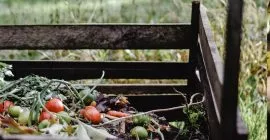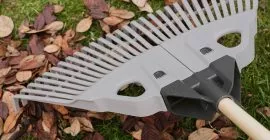Home composting is a great, sustainable way of recycling kitchen and garden waste, whilst also creating an excellent soil improver for your garden. Here are our top tips for composting at home.
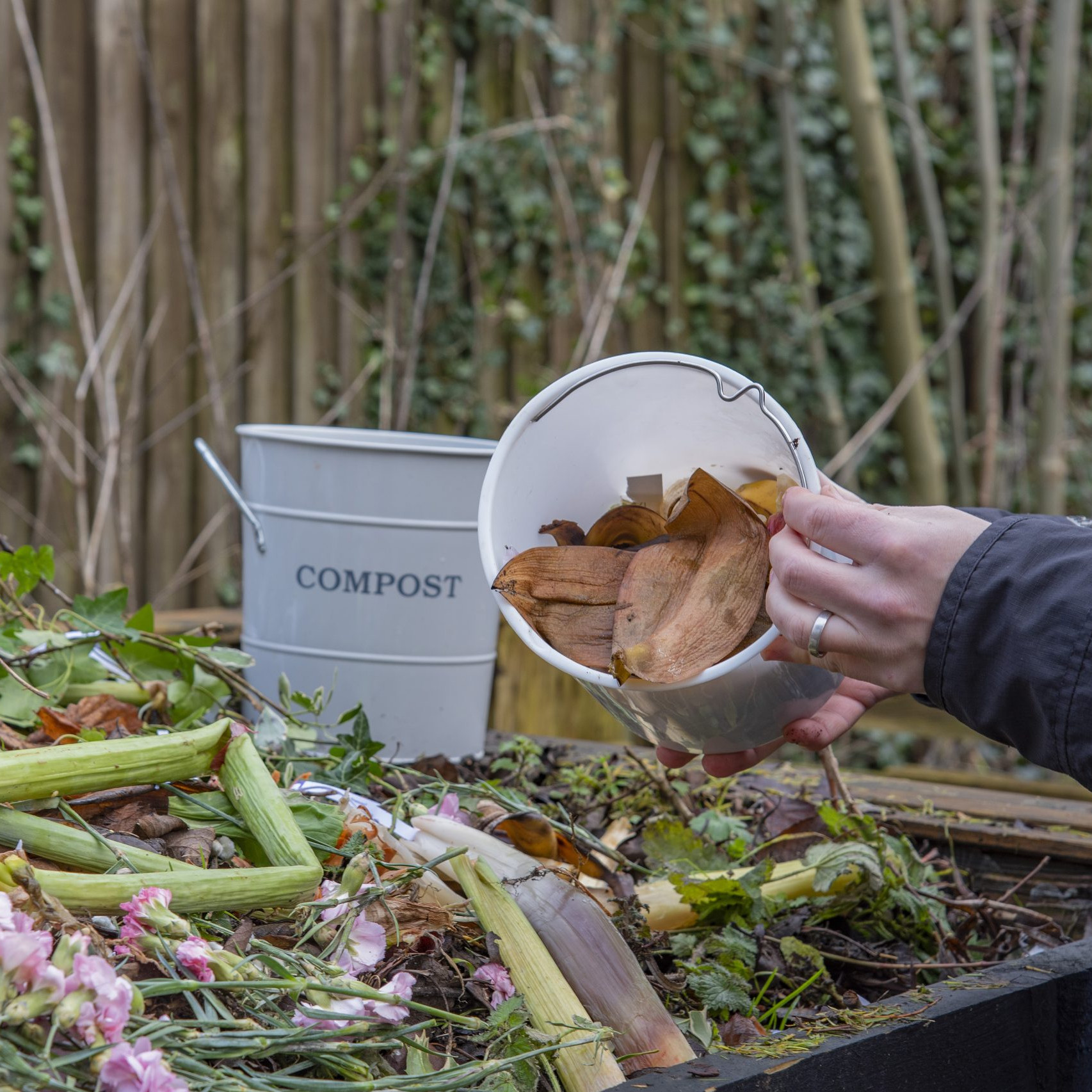
Home Composting – What to compost?
During the autumn when leaves are falling, gather up your leaves and add them to a compost heap. However, avoid forming heaps exclusively from fallen leaves. Mix in other woody brown material such as prunings, along with shredded paper and cardboard, and green matter such as vegetable waste, annual weeds, and grass clippings. A healthy heap should contain a good balance of brown and green waste to help it decompose efficiently.
Kitchen Waste
- Fruit and Vegetable Scraps: Peelings, cores, and rinds.
- Coffee Grounds and Filters: Adds nitrogen to the compost.
- Tea Bags and Loose Tea Leaves: Ensure bags are plastic-free.
- Eggshells: Rinse them before composting.
- Stale Bread and Crackers: Avoid items with lots of oil or dairy.
Garden Waste
- Grass Clippings: Add in thin layers to prevent matting.
- Leaves: Chop or shred large leaves for quicker decomposition.
- Weeds: Only compost weeds without seeds.
- Prunings and Twigs: Break down larger pieces to speed up composting.
Paper and Cardboard
- Shredded Paper: Avoid glossy or colored paper.
- Cardboard: Tear up cereal boxes, toilet paper rolls, or egg cartons.
- Newspaper: Use in moderation and avoid colored ink.
Other Household Items
- Hair and Pet Fur: Biodegradable and adds nitrogen.
- Cotton or Wool Scraps: Ensure they’re 100% natural fibres.
- Vacuum Cleaner Dust: Only if it’s from natural materials.
- Wood Ash: Small amounts from untreated wood.
Things to Avoid
- Meat, fish, and dairy products (attract pests).
- Oily or greasy foods.
- Diseased plants or weeds with seeds.
- Glossy magazines or plastic-coated materials.
- Pet waste from carnivores (cats, dogs).
TOO WET?
If your heap is too wet the chances are it has too much water or nitrogen. Turn the pile regularly to aerate and keep the temperature under control. Add some brown materials like shredded cardboard, newspaper, or small twigs to balance it out.
TOO DRY?
The opposite is happening and you may have too much brown material. Add a layer of green together with a splash of water and a sprinkle of Garotta.
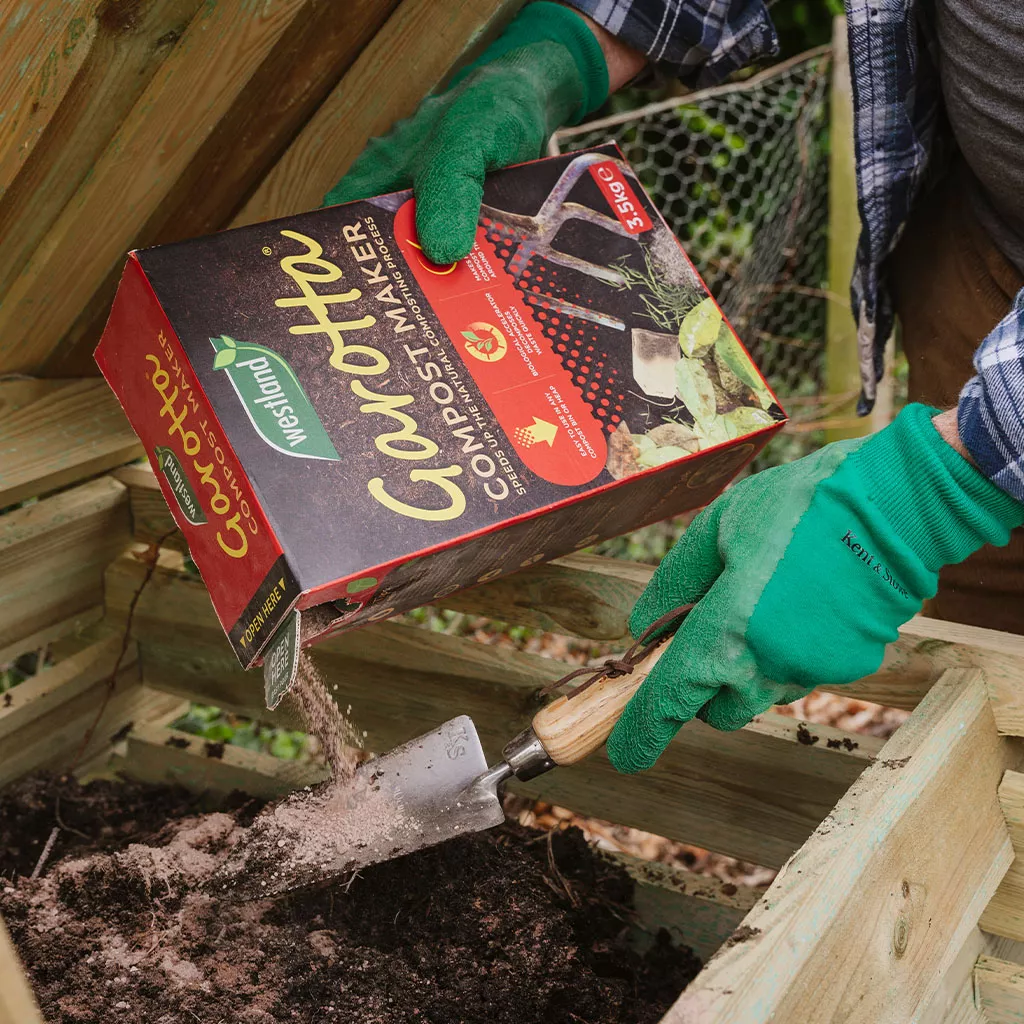
A BIT SMELLY?
It’s best not to add fresh food waste to the pile like meat, fish, or dairy. Not only do they make the pile smell bad but they can also invite unwanted pests to your garden.
TOO SLOW?
If the process is too slow you may find that your brown material is too large. Make sure you shred the sticks and tear the cardboard into smaller pieces to increase the available surface area for the microbes to get to work on.
WHERE TO USE
The compost you create can be used as a soil conditioner or a garden mulch to help replenish the nutrients that have been depleted from the soil by plant growth. Use all around the garden on your beds and borders or in your vegetable patch.


